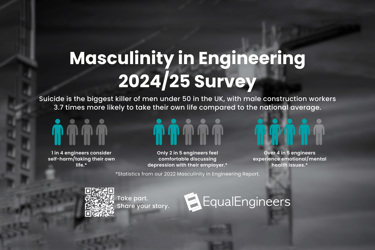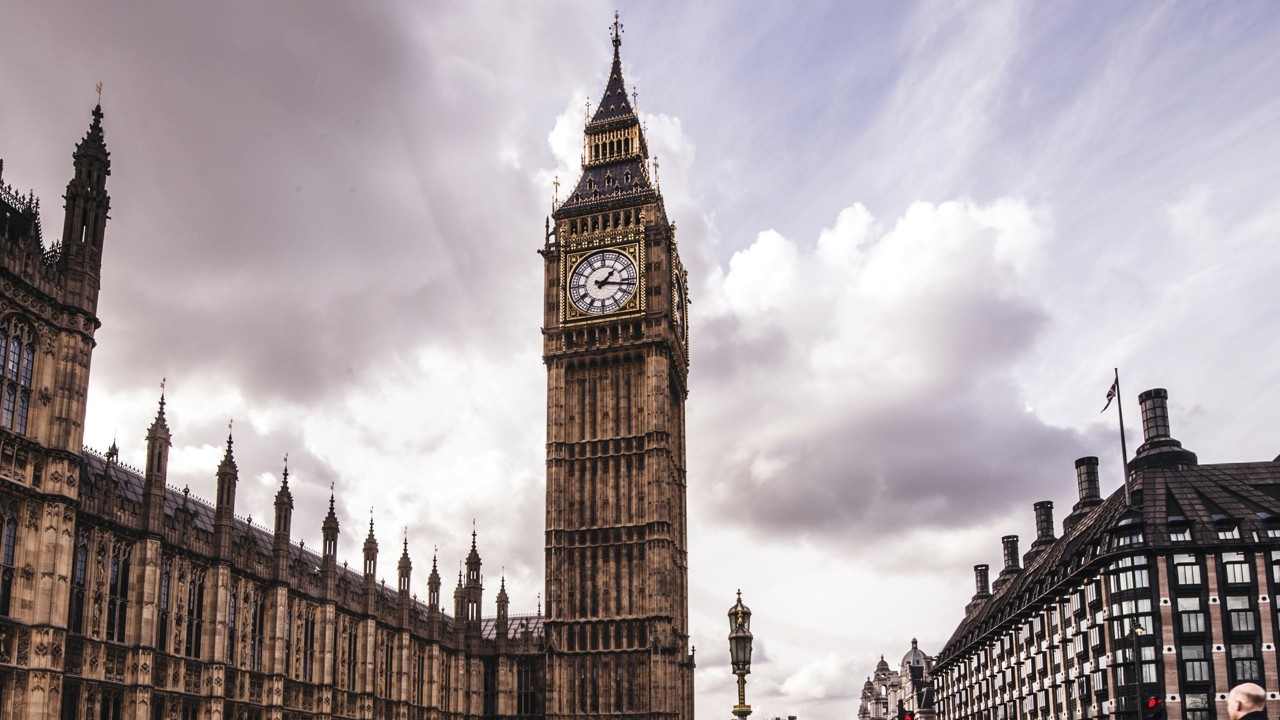EqualEngineers launches survey to investigate masculinity in sector
EqualEngineers has launched its third survey investigating masculinity in engineering, building on two rounds of research completed first in 2018, and again in 2021.
This survey explores if the culture of engineering is affected by the stereotype of what an engineer looks like, and how men are expected to behave. Do men feel included or excluded in the push to increase diversity? Could a more diverse profession benefit both women and men?
The survey will close on Friday 28 February 2025.

A survey investigating masculinity in engineering has been launched by EqualEngineers. This survey would like to know your views and opinions - the real ones, not the ones you feel you should express and we want respondents to give us their real answers, not just the 'right' answers.
Building on two rounds of research completed first in 2018, and again in 2021, the survey explores if the culture of engineering is affected by the stereotype of what an engineer looks like, and how men are expected to behave. Do men feel included or excluded in the push to increase diversity? Could a more diverse profession benefit both women and men?
Engineering and technology in the UK is a predominately male profession, with men comprising over 85% of the workforce. Many diversity efforts pivot on getting more women into engineering.
The survey is the brainchild of Dr Mark McBride-Wright, MBE, Founder & CEO of EqualEngineers, who set the company up after years of working in the sector and seeing not only the challenges that the lack of diversity can bring, but also the risks posed to health, safety and wellbeing. Being a gay safety engineer himself, and setting up networking group InterEngineering for LGBT+ engineers gave him the drive to set up an organisation covering all aspects of diversity.
Mark said, “For me, inclusivity in the workplace is a health and safety issue. Not being able to be open about who you are, because of attitudes and lack of diversity around you can lead to mental health issues and decreased wellbeing.
"In construction, for example, an industry where suicide rates among men are more than three times the national average, more needs to be done to ensure that commitment to these issues goes much further than token inclusion policies. Both our 2018 and 2021 research found that one in five engineers had lost a work colleague to suicide, and a similar number had self-harmed or had suicidal thoughts themselves.
My hope is for this survey is to capture the voice of men in the engineering and tech industries, individuals who perhaps feel excluded from the focus on diversity and inclusion efforts of organisations. We need to rapidly overhaul the way in which we approach culture change programmes within our industry, and we need to ensure everyone feels included, and is able to find their voice as part of the diversity narrative.”
For more information, visit https://equalengineers.com/masculinity-in-engineering-research/
To take survey directly, visit https://bit.ly/MiESurvey24
My hope is for this survey is to capture the voice of men in the engineering and tech industries, individuals who perhaps feel excluded from the focus on diversity and inclusion efforts of organisations. We need to rapidly overhaul the way in which we approach culture change programmes within our industry, and we need to ensure everyone feels included, and is able to find their voice as part of the diversity narrative.
— Mark McBride-Wright, Founder & CEO of EqualEngineers












